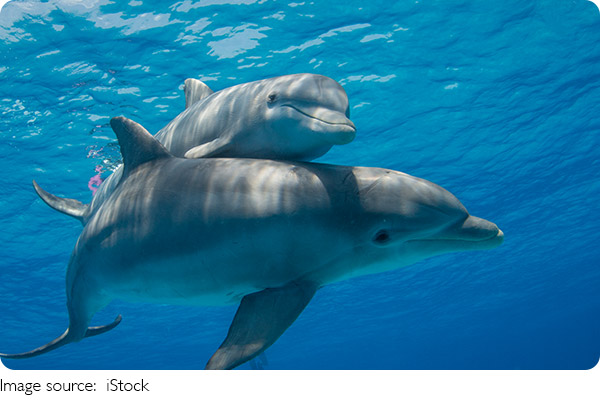Dolphin Mind Reading

Have you ever wondered if dolphins can truly sense what humans feel? These marine mammals have captivated human imagination for centuries due to their playful nature, intelligence, and seemingly empathetic behavior.
Recent scientific studies suggest that dolphins possess advanced cognitive abilities and complex social behaviors that may allow them to connect with human emotions.
Let's dive deeper into the fascinating world of dolphin cognition and emotional understanding.
Dolphin Intelligence: Beyond Simple Animal Behavior
Dolphins rank among the most intelligent creatures on Earth. Their large brains relative to body size, sophisticated communication skills, and problem-solving abilities place them in a category comparable to great apes. Research has shown dolphins can recognize themselves in mirrors—an indicator of self-awareness rarely observed in animals. This high intelligence forms the foundation for their ability to interpret and respond to environmental cues, including those from humans.
Complex Social Structures in Dolphin Communities
Dolphins live in dynamic social groups known as pods, which exhibit intricate social bonds and cooperation. These pods have unique vocalizations or "signature whistles" that function much like names. Social interactions involve cooperation in hunting, protection from threats, and even care for injured pod members. Such behaviors require emotional intelligence and social cognition, hinting that dolphins could be sensitive to the emotional states of others, including humans.
Communication: The Key to Emotional Connection
Dolphins communicate through a combination of clicks, whistles, and body language. Studies have recorded dolphins responding to human gestures and voice tones, suggesting they can interpret emotional content. Anecdotal evidence and controlled experiments indicate dolphins can exhibit empathy, such as comforting distressed humans or responding to human emotional cues during interaction. Although this doesn't confirm “mind reading” in a literal sense, it points to their ability to connect on an emotional level.
Scientific Studies on Dolphin-Human Emotional Interaction
Scientists have used various methods to explore dolphin cognition. For example, neurobiological research reveals that dolphin brains have a highly developed limbic system—the part of the brain associated with emotions in mammals. Behavioral experiments demonstrate dolphins' capacity for social learning and emotional contagion, where one individual's emotional state influences another's. These findings support the possibility that dolphins perceive and respond to human emotions in ways previously underestimated.
Limitations and Skepticism: What We Don't Yet Know
Despite promising findings, many aspects of dolphin emotional cognition remain unclear. Researchers caution against anthropomorphizing dolphin behavior—that is, projecting human feelings onto them. The extent to which dolphins understand human emotions or experience empathy as humans do is still debated. Ongoing studies aim to clarify these points through more rigorous experimental designs and long-term observation.
The Mutual Benefits of Dolphin-Human Interaction
Interactions between dolphins and humans often benefit both parties. Dolphin-assisted therapy programs for people with disabilities have shown positive effects, suggesting dolphins can respond to human emotional and physical needs. Furthermore, understanding dolphin cognition can enhance conservation efforts by highlighting their sentience and need for protection in the wild.

Conclusion: Are Dolphins Truly Emotionally Attuned to Humans?
So, can dolphins really read human emotions? While scientific evidence increasingly shows that dolphins possess remarkable intelligence and social skills enabling emotional awareness, the full extent of their understanding remains a mystery. Their ability to connect with humans emotionally is real but complex, blending biology, behavior, and environment. Next time you see a dolphin leap joyfully or swim close, consider the profound cognitive world beneath those gentle eyes. What emotions do you think they sense from you?
-
 How Sloths Master LifeThey barely move, yet they thrive—what sloths teach us about smart survival.
How Sloths Master LifeThey barely move, yet they thrive—what sloths teach us about smart survival. -
 Dolphin TalkUnlocking the Secret Language of Dolphins: How These Marine Mammals Communicate with Each Other!
Dolphin TalkUnlocking the Secret Language of Dolphins: How These Marine Mammals Communicate with Each Other! -
 Bee Dance CodeBee Dance Code: How Bees Share Food Locations Through Dance and Build Social Harmony!
Bee Dance CodeBee Dance Code: How Bees Share Food Locations Through Dance and Build Social Harmony!